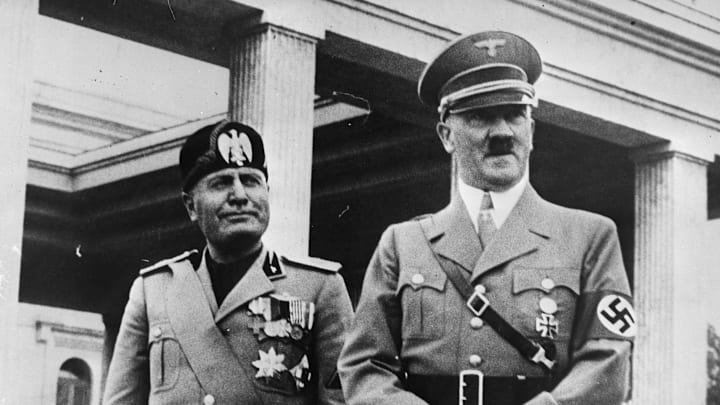Contempt for those considered weak
Most people believe that racism is an inherent part of fascism, and it's certainly possible that it is. But instead, there is the creation of the enemy, as mentioned above, and a hatred for those considered weak. Fascist regimes teach their citizens that the weak are unworthy of their concern, which disrupts natural morality and makes it easier to attack the "weak" populations.
This perspective seemed to infiltrate all layers of life. As Eco explained, the hierarchical structure guided all leaders to look down on those who had less power than them. This kept them from feeling any moral obligation to them and supported the party's superiority myths. Going further, men were placed inherently above women, often by asserting that women were inherently weaker in all aspects.
Stanley G. Payne explained that this idea went further. Men were placed above women, but the young were also placed above the old. There are several practical explanations for this. The young are often easier to brainwash because the government controls what they can learn. But young men are also generally considered stronger, and thus more apt for physical labor and war, which are vital to maintaining a totalitarian regime.
Although not overtly discussed by these scholars, the disabled often end up being easy targets for fascist regimes, because most societies view them as inherently lesser. They are often physically unable to do the same things others can, which makes it easy to pose them as useless. In the Nazi Regime, this was described as being Lebensunwertes Leben, or "life unworthy of life." Socially and ideologically, people with disabilities, women, and the elderly were looked down on, to support the idea of the healthy young man as eminently superior. Once this ideology was accepted, they could be abused or killed without others speaking up.
An association with mythology and/or religion
The final trait up for discussion here is the close connection formed between fascist regimes and some form of mythic authority. This might come from the studies of the occult that claim a certain population is blessed by God, having religious leaders endorse the fascist leader, or even the creation of new mythologies to justify their beliefs and actions.
Particularly in mythological and religious contexts, there are examples of utopias that once existed or are destined to exist, which fascist leaders can draw on. They are Rome, risen again, or they are the fulfillment of an ancient prophecy. The modern world is often much more secularized than in the past, which can leave people longing for a sacred purpose. Fascists see that need and offer it up to their citizens on a silver platter.
In many cases, the fascist leaders also have the support of the Christian Church behind them—or some segment of it, at least. Pope Pious IX actively allied himself and the Catholic Church with Mussolini, creating the Lateran Accords. Francisco Franco was also supported by the Catholic Church, which endorsed him and collaborated to create "National Catholicism." Hitler had a violent and complicated relationship with Christianity, but he invoked it and the Crusades to justify his quest for "purity."
In some regimes, there was also an odd blending of religious and mythological legitimacy. Christianity was an easy weapon, because most of Europe was Christian, but leaders often focused on their country's legends and/or pagan roots as a way to show that their people had always been superior. Both avenues provided social legitimacy, gave a historical reason for hatred of the other, and gave people the feeling that they were part of something larger than themselves.
When Hannah Arendt investigated Nazi Germany, she noted a student who said, "What counts is always the readiness to make a sacrifice, not the object for which the sacrifice is made." That is the ideal state for a fascist leader because the people have been primed to react out of loyalty and perceived honor, regardless of what task they may be assigned.
